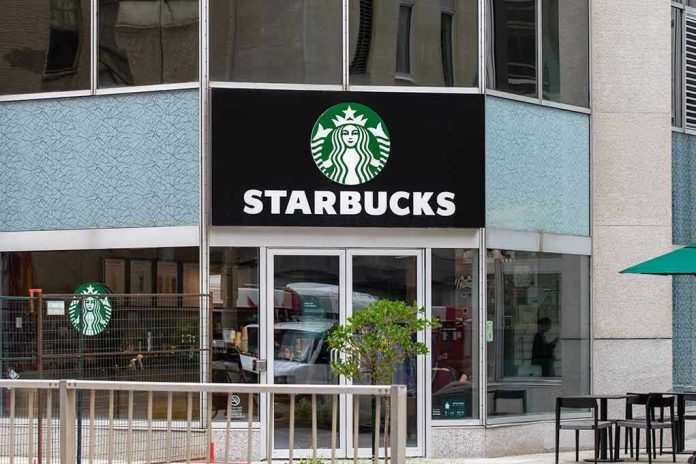
When Starbucks workers chose to strike during Red Cup Day—the coffee giant’s most lucrative annual event—they transformed holiday cheer into a corporate nightmare that exposes deeper fractures in America’s service economy.
Story Snapshot
- Workers at 65 Starbucks stores nationwide launched coordinated strikes during Red Cup Day, the company’s biggest sales event
- Starbucks Workers United targeted the high-profile holiday promotion to maximize leverage against alleged union-busting tactics
- The strikes represent escalating tensions in a nationwide unionization movement that began in Buffalo in 2021
- Contract negotiations remain stalled as workers demand better pay, improved conditions, and an end to anti-union retaliation
Strategic Timing Amplifies Worker Demands
Red Cup Day transforms Starbucks locations into holiday battlegrounds where customers queue for limited-edition reusable cups and seasonal drinks. Workers deliberately chose this moment to walk off the job, knowing the timing would inflict maximum economic pain while generating nationwide media attention. The strategy demonstrates sophisticated labor organizing that goes beyond traditional picket lines to leverage corporate vulnerabilities.
The coordinated nature of strikes across 65 stores, including locations in metro Atlanta, reveals months of careful planning by Starbucks Workers United. This level of organization signals a mature labor movement that understands how to pressure corporations through their most sensitive profit centers rather than merely disrupting regular business operations.
Corporate Resistance Meets Worker Persistence
Starbucks has fought unionization efforts since the first successful vote in Buffalo, New York in December 2021. The company faces multiple National Labor Relations Board complaints alleging illegal anti-union tactics, including retaliating against organizers and refusing to bargain in good faith. These allegations paint a picture of corporate leadership that talks progressively while acting defensively when workers seek collective bargaining rights.
The coffee chain’s resistance reflects broader corporate America’s discomfort with renewed labor activism. Despite marketing itself as a socially conscious employer, Starbucks executives apparently draw the line at allowing workers meaningful input into wages, schedules, and working conditions. This contradiction between public image and private practice increasingly defines modern corporate labor relations.
Economic Leverage Through Consumer Disruption
Red Cup Day generates massive foot traffic and social media buzz, making it irreplaceable in Starbucks’ annual marketing calendar. Workers understand that disrupting this specific event carries disproportionate weight compared to striking during slower periods. The economic calculus is simple: hit the company when it hurts most, forcing management to choose between short-term profits and long-term labor peace.
Customer reactions reveal the complexity of modern labor disputes where consumers become unwitting participants in corporate battles. Some customers support striking workers and refuse to cross picket lines, while others express frustration at missing holiday promotions. This dynamic creates additional pressure on corporate management to resolve disputes quickly before brand loyalty erodes.
Broader Implications for Service Industry Labor
The Starbucks unionization movement represents the largest organized labor effort in the modern fast-food and coffee sector. Success here could inspire similar campaigns at other major chains, fundamentally altering how service industry workers negotiate with corporate employers. The stakes extend far beyond coffee shops to include the entire low-wage service economy.
Conservative observers might appreciate workers using market-based leverage rather than relying solely on government intervention. The strikes demonstrate American workers exercising their fundamental right to organize and negotiate, principles that align with traditional values of self-reliance and fair dealing. When corporations resist these basic rights through alleged illegal tactics, they undermine the free market principles they claim to champion.
Sources:
WABE: “Starbucks workers kick off 65-store strike in metro Atlanta, across US”

